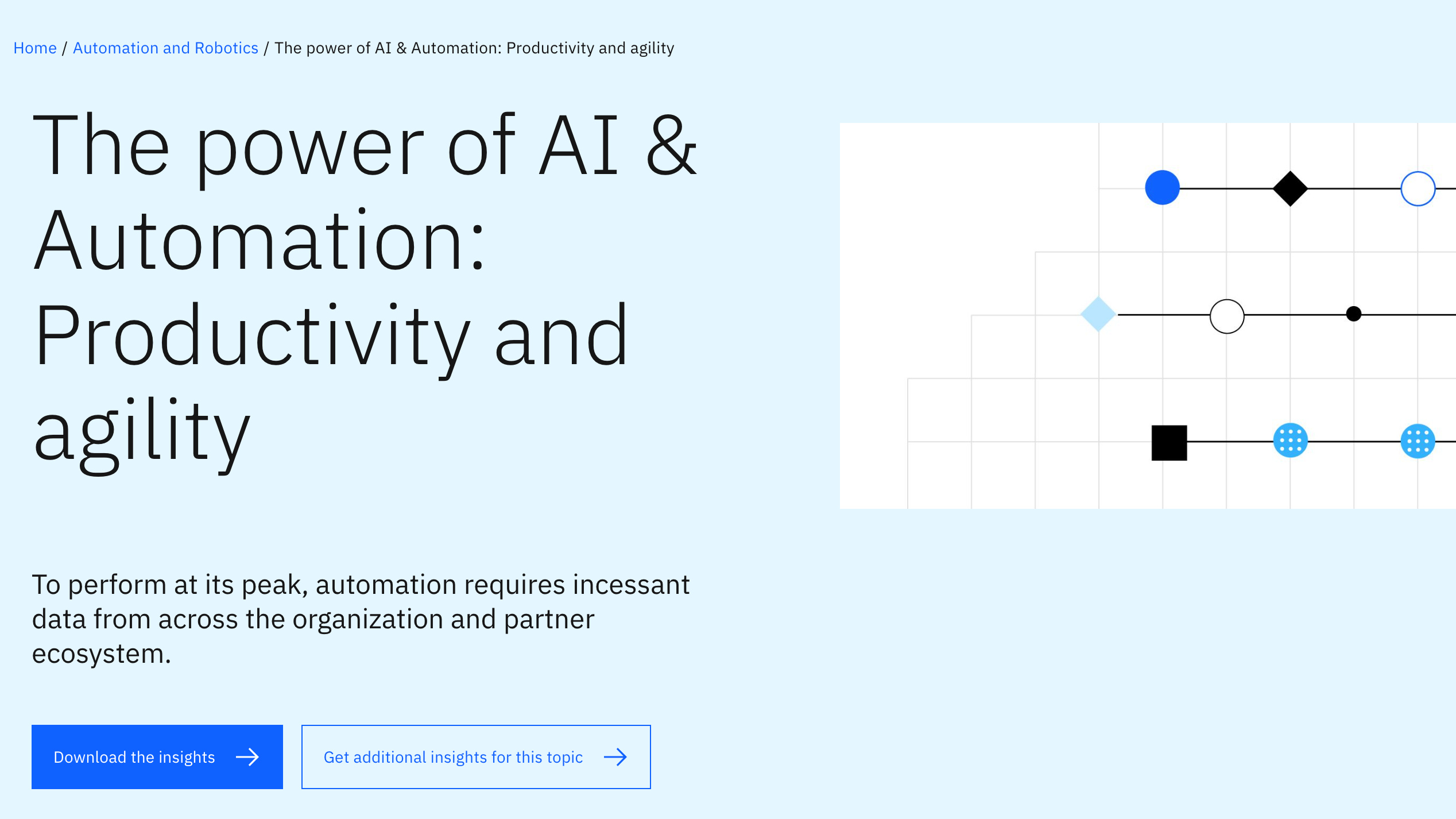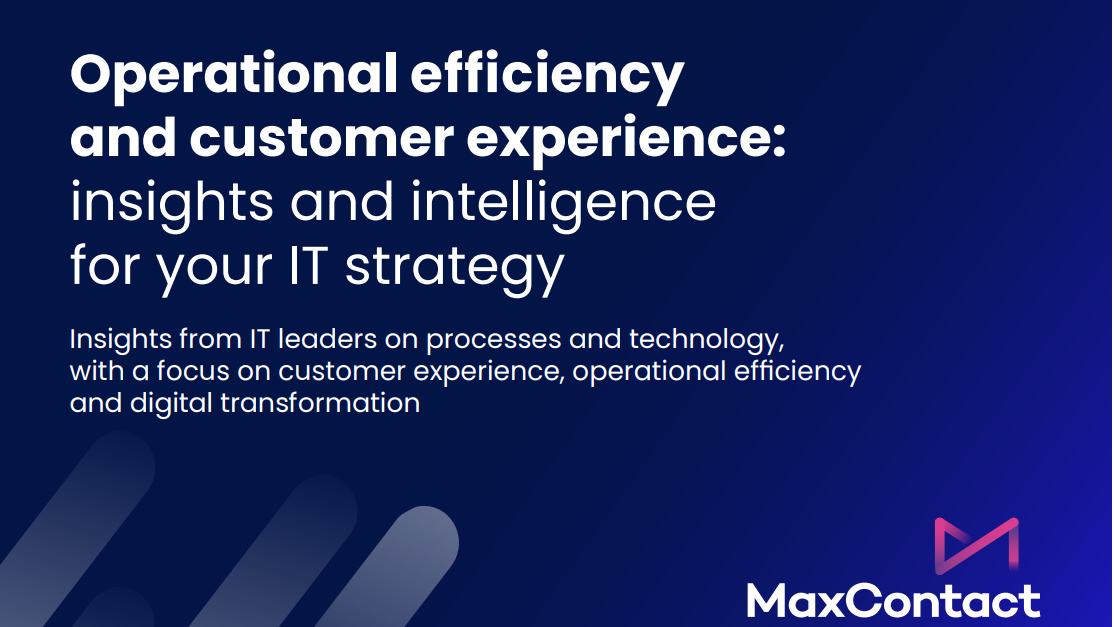AI may replace humans in lower-middle skilled jobs
A government report outlines some of the jobs that AI is likely to substitute

Lower and middle-skilled roles, such as routine manual or data processing jobs, are at risk from developing AI, according to a report published by the Government Office for Science.
Outlining some of the possible implications of AI, the report says new technologies such as machine learning, robotics, big data and autonomous systems could have huge implications for the economy and labour markets.
It reads: "These technologies together can be seen as part of a new wave of 'general purpose' digital technologies, comparable to the steam engine, and the moving assembly line, with the potential to drive significant socio-economic change."
The extent and speed at which new technologies will impact the labour market is still uncertain, however.
While a Deloitte study quoted by the report found that 35% of UK jobs will be affected by automation over the next 10 to 20 years, the OECD said only 10% of jobs are at risk.
Due to the increase in "complexity, knowledge and technological intensity of the economy", the need for high-skilled labour could increase. In addition to this, automation could demand for higher skills at entry-level positions.
By 2022, almost half of employment is expected to be managerial, professional or associate professional.
Get the ITPro daily newsletter
Sign up today and you will receive a free copy of our Future Focus 2025 report - the leading guidance on AI, cybersecurity and other IT challenges as per 700+ senior executives
The Institute for Public Policy Research (IPPR) predicts that the EU demand for skilled workers will exceed its supply.
Having a degree is not expected to exclude AI substitution, as some degree-level jobs also involve routine cognitive tasks.
The good news is that, overall, AI is not expected to decrease employment, as new jobs could also be introduced.
"Jobs that grow in the future are likely to be those that will complement technology (rather than be substituted by it)", says the government report.
"There is significant evidence that STEM and digital skills will be increasingly in demand. UKCES project that the number of programmers and software developers will increase by around 20% between 2012 and 2022."
The European Commission suggests that jobs that will resist automation will be those that require people to "think, communicate, organise and decide".
Another possible consequence of technological advances could be rapid changes in job-specific skills, leading to workers having to change jobs, re-skill and adapt often during their career.
This could in turn increase the value of skills applicable across different settings, such as problem solving and mental flexibility.
The report reads: "Government has a role to play in facilitating the development of new skills, enabling workers to retrain, either to use artificial intelligence effectively in their work or to move into areas where the value of particularly human skills - such as empathy or creativity - is evident."
Last month, the Science and Technology Committee had urged the UK government to reskill the population, to ensure that workers whose job could be replaced by AI learn skills applicable to the new roles that should be emerging within the future labour market.
-
 Bigger salaries, more burnout: Is the CISO role in crisis?
Bigger salaries, more burnout: Is the CISO role in crisis?In-depth CISOs are more stressed than ever before – but why is this and what can be done?
By Kate O'Flaherty Published
-
 Cheap cyber crime kits can be bought on the dark web for less than $25
Cheap cyber crime kits can be bought on the dark web for less than $25News Research from NordVPN shows phishing kits are now widely available on the dark web and via messaging apps like Telegram, and are often selling for less than $25.
By Emma Woollacott Published
-
 Future focus 2025: Technologies, trends, and transformation
Future focus 2025: Technologies, trends, and transformationWhitepaper Actionable insight for IT decision-makers to drive business success today and tomorrow
By ITPro Published
-
 B2B Tech Future Focus - 2024
B2B Tech Future Focus - 2024Whitepaper An annual report bringing to light what matters to IT decision-makers around the world and the future trends likely to dominate 2024
By ITPro Last updated
-
 Six steps to success with generative AI
Six steps to success with generative AIWhitepaper A practical guide for organizations to make their artificial intelligence vision a reality
By ITPro Published
-
 The power of AI & automation: Productivity and agility
The power of AI & automation: Productivity and agilitywhitepaper To perform at its peak, automation requires incessant data from across the organization and partner ecosystem
By ITPro Published
-
 Operational efficiency and customer experience: Insights and intelligence for your IT strategy
Operational efficiency and customer experience: Insights and intelligence for your IT strategyWhitepaper Insights from IT leaders on processes and technology, with a focus on customer experience, operational efficiency, and digital transformation
By ITPro Published
-
 Sustainability at scale, accelerated by data
Sustainability at scale, accelerated by dataWhitepaper A methodical approach to ESG data management and reporting helps GPT blaze a trail in sustainability
By ITPro Published
-
 What businesses with AI in production can teach those lagging behind
What businesses with AI in production can teach those lagging behindWhitepaper The more sophisticated the AI Model, the more potential it has for the business
By ITPro Published
-
 Four steps to better business decisions
Four steps to better business decisionsWhitepaper Determining where data can help your business
By ITPro Published